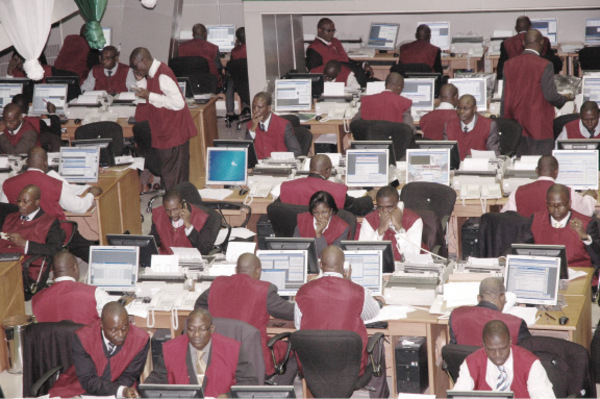Proceeds repatriated by foreign investors from their liquidated stocks portfolio reached record highs of N236billion in eleven months to November 2016, metrobusinessnews checks at the Nigerian Stock Exchange (NSE) revealed.
These foreign investors who hitherto were big buyers of Nigerian stocks have been seeking for safe havens for investments following their wariness over developments in Nigeria’s macro economy with paltry investment inflow of N 237.03billion in stocks in the nine months period.
Many analysts were bearish on foreign inflows into equities as the market rode the roller coaster of oil price. Other negative triggers to foreign investors sell decisions were analysts’ expectations of unimpressive corporate results, as foreign exchange (FX) issues blighted many listed firms.
In January 2016, the stock market recorded foreign inflow of N17.01billion and an outflow of N26.36billion. In February 2016, foreign inflows were worth N10.94billion while outflows reached a high of N31.84billion.
Since 2015, foreign investment outflows out of the Nigerian stock market have been at all time highs. In the corresponding nine months, it was N519.93billion against an inflow of N453.79billion.
“Nigeria’s macro picture and policies are not quite supportive of equities. Market sentiment focuses squarely on the outlook for interest rates and exchange rate regime”, Bismarck Rewane, MD/CEO, Financial Derivatives Company Limited said in an outlook for 2017.
Foreign inflow in March 2016 was N15.40billion against N19.04billion outflow; in April 2016, the stock market recorded N14.52billion in foreign inflows against N13.76billion outflow; while in May, foreign investors’ inflow into the Nigerian stock market was N20.96billion against an outflow of N19.62billion.
“I think most foreign portfolio investors liquidated their positions due to the weak macroeconomic environment prevalent in the country, especially bordering on FX liquidity. In their view, they believed that the current policy on FX leading to the adoption of a floating exchange rate regime is not transparent enough.
“They believed there are very strong elements of control by the CBN, along with inadequate FX liquidity in the system to meet their demand in terms of repatriation of capital,” Sewa Wusu, head, research, SCM Capital Limited, said in an emailed response to BusinessDay questions.
Foreign inflow in June was N42.46billion against N37.30billion outflow; in July, inflow was N23.43billion, against outflow of N20.85billion; while in August, 2016, foreign inflow into the Nigerian stock market was N34.70billion against N21.36billion outflow.
“It is not surprising that foreign portfolio flows (FPIs) into naira assets have been muted, despite attractive yields on naira fixed income (FI) assets (one of the highest amongst frontier markets) which is a direct consequence of higher interest rates from a tight monetary policy stance and aggressive OMO issuances. A similar pattern is evident in the equities market,” research analysts at United Capital Plc, said in their post MPC note to investors.
In September, the market recorded N24.41billion foreign inflow against N19.18billion outflow; October 2016 saw an inflow of N18.67billion against N12.57billion outflow; while in November the stock market recorded foreign inflow of N14.53billion against N14.62billion outflow.
Besides, analysts noted that the value of foreign investors holdings in Nigerian equities seem to have been significantly eroded “following the impact of economic recession which has negatively affected the performances of quoted companies.
“In order for value not be further drained, some of them exited their position, waiting for a definite pronouncement from the monetary authority, on the country’s FX policy. I think the authority has stated clearly that there is not going to be any devaluation. What the government is trying to do is to mandate the CBN to narrow the wide disparity between the parallel and official markets. But, the issue still borders on FX supply, regardless of any policy to be adopted to close the gap,” the analyst noted.
Though, the analyst believes that the external fronts seem to have improved a bit in favour of Nigeria, with the increase in oil prices above $50 per barrel and the increase in crude oil production to about 1.9 million barrel per day.
“As a result, we have seen an accretion to the Foreign Reserve position to above $27 billion. I think if these conditions continue to improve, then the CBN can muster enough support for the naira, by meeting some of the legitimate FX demand. This then may likely improve the performance of companies in the near-term.
“But that is just anticipation for a slight solution in the near-term. The long-term solution is for a diversified economy, which the government is currently pursuing. This will ultimately redress the current economic challenge and impact positively on quoted companies’ performance to attract the FPIs,” Wusu noted.










